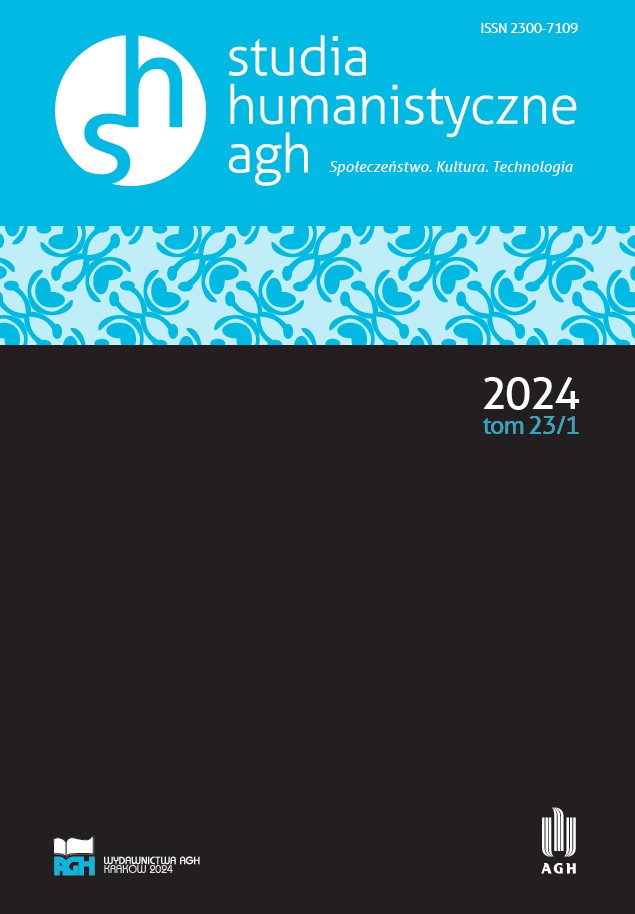Kultura wellbeing… w kuchni. Refleksja o jedzeniu w kontekście pojęcia dobrostanu (wellbeing)
DOI:
https://doi.org/10.7494/human.2024.23.1.6331Słowa kluczowe:
marketing, jedzenie, wellbeing, reklama, food for wellbeingAbstrakt
Celem artykułu jest pokazanie, że nawiązanie do pojęcia dobrostanu w szerokim rozumieniu (nie tylko w aspekcie zdrowia fizycznego, ale również w sensie emocjonalnym czy społecznym) wykorzystuje się w reklamach żywności, aby zachęcić konsumentów do nabywania produktów spożywczych. Samo odwoływanie się do idei dobrostanu w reklamie żywności nie oznacza jednak budowania „pozytywnej kultury żywieniowej”, to znaczy takiej, która wspiera zdrowe nawyki żywieniowe (Mingay et al., 2021), ponieważ takie nawiązania można znaleźć również w reklamach słodyczy czy jedzenia typu fast food. Jednym z zastosowanych w artykule odniesień teoretycznych jest koncepcja food for wellbeing (Block et al., 2011), która stanowi uzupełnienie popularnej dotychczas koncepcji food for health.
Pobrania
Pliki dodatkowe
Opublikowane
Numer
Dział
Licencja
Prawa autorskie (c) 2024 © Wydawnictwa AGH, Kraków 2024, Creative Commons CC-BY 4.0 License

Utwór dostępny jest na licencji Creative Commons Uznanie autorstwa 4.0 Międzynarodowe.
Authors who publish with this journal agree to the following terms:1) Authors retain copyright and grant the journal right of first publication with the work simultaneously licensed under a Creative Commons Attribution License that allows others to share the work with an acknowledgement of the work's authorship and initial publication in this journal.
2) Authors are able to enter into separate, additional contractual arrangements for the non-exclusive distribution of the journal's published version of the work (e.g., post it to an institutional repository or publish it in a book), with an acknowledgement of its initial publication in this journal.
3) Authors are permitted and encouraged to post their work online (e.g., in institutional repositories or on their website) prior to and during the submission process, as it can lead to productive exchanges, as well as earlier and greater citation of published work (See The Effect of Open Access).



